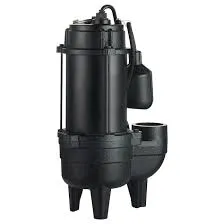Uzbek
- Afrikaans
- Albanian
- Amharic
- Arabic
- Armenian
- Azerbaijani
- Basque
- Belarusian
- Bengali
- Bosnian
- Bulgarian
- Catalan
- Cebuano
- Corsican
- Croatian
- Czech
- Danish
- Dutch
- English
- Esperanto
- Estonian
- Finnish
- French
- Frisian
- Galician
- Georgian
- German
- Greek
- Gujarati
- Haitian Creole
- hausa
- hawaiian
- Hebrew
- Hindi
- Miao
- Hungarian
- Icelandic
- igbo
- Indonesian
- irish
- Italian
- Japanese
- Javanese
- Kannada
- kazakh
- Khmer
- Rwandese
- Korean
- Kurdish
- Kyrgyz
- Lao
- Latin
- Latvian
- Lithuanian
- Luxembourgish
- Macedonian
- Malgashi
- Malay
- Malayalam
- Maltese
- Maori
- Marathi
- Mongolian
- Myanmar
- Nepali
- Norwegian
- Norwegian
- Occitan
- Pashto
- Persian
- Polish
- Portuguese
- Punjabi
- Romanian
- Russian
- Samoan
- Scottish Gaelic
- Serbian
- Sesotho
- Shona
- Sindhi
- Sinhala
- Slovak
- Slovenian
- Somali
- Spanish
- Sundanese
- Swahili
- Swedish
- Tagalog
- Tajik
- Tamil
- Tatar
- Telugu
- Thai
- Turkish
- Turkmen
- Ukrainian
- Urdu
- Uighur
- Uzbek
- Vietnamese
- Welsh
- Bantu
- Yiddish
- Yoruba
- Zulu
Telephone: +86 13120555503
Email: frank@cypump.com
Dek . 10, 2024 20:13 Back to list
Design and Efficiency of Centrifugal Pumps for Handling Slurry Applications
Centrifugal Pump for Slurry An Essential Tool in Various Industries
Centrifugal pumps are crucial in many industrial applications, particularly for transporting fluids with solid particles, such as slurries. A slurry is a mixture of solid particles suspended in a liquid, commonly found in industries like mining, wastewater treatment, and chemical processing. The effective transportation of these mixtures poses significant challenges, and centrifugal pumps are often the preferred solution due to their efficiency and reliability.
Understanding Centrifugal Pumps
At its core, a centrifugal pump converts rotational energy from a motor into hydrodynamic energy, creating a flow of liquid. The pump consists of a rotating impeller that increases the velocity of the fluid, which then exits the pump through a diffuser or volute, converting kinetic energy into pressure energy. This design allows centrifugal pumps to effectively move high volumes of liquids, making them suitable for handling slurries.
Key Features of Slurry Centrifugal Pumps
1. Design Modifications Slurry centrifugal pumps are specifically designed to handle abrasive, high-solids content fluids. They typically have thicker casings, heavy-duty impellers, and wear-resistance materials to withstand the demanding conditions associated with slurry transport.
2. Impeller Types There are various impeller designs for slurry pumps, including open, semi-open, and closed impellers. Open impellers are often used for slurries with larger particles, allowing solids to pass through without clogging, while closed impellers are more efficient and suitable for finer slurries.
3. Wear Components Due to the abrasive nature of slurries, wear components such as liners and impellers are constructed from tough materials like chrome alloy, rubber, or ceramic. These materials not only extend the life of the pump but also minimize maintenance costs over time.
4. Hydraulic Design The hydraulic design of slurry pumps is tailored to handle varying concentrations of solids. The pump's passageways are larger than those of standard pumps to accommodate the movement of particles efficiently.
5. Adjustable Speed Some modern slurry pumps are equipped with variable speed drives, allowing operators to adjust the flow rate based on specific application requirements. This feature enhances the versatility and efficiency of these pumps.
centrifugal pump for slurry

Applications of Centrifugal Slurry Pumps
1. Mining and Mineral Processing Slurry pumps play a vital role in transporting tailings, thickened slurries, and concentrator feed. The ability to manage high solid concentrations without blocking is crucial in these settings.
2. Wastewater Treatment In wastewater treatment facilities, centrifugal pumps are used to move sludge and other slurry-like byproducts. Their robust design helps in maintaining flow consistency and minimizing downtime.
3. Chemical Processing The chemical processing industry utilizes slurry pumps for the production and transportation of chemicals, pigments, and other materials that contain solid particles.
4. Construction and Drilling In construction and drilling, these pumps are essential for the removal of cuttings and slurries, ensuring a smooth operation and reducing stoppages.
Advantages of Using Centrifugal Slurry Pumps
- Efficiency Due to their design, centrifugal slurry pumps can handle large volumes of fluids at a relatively lower energy cost compared to other types of pumps. - Versatility These pumps can be tailored for various applications, accommodating different flow rates and solid concentrations. - Reduced Maintenance With proper selection and maintenance, slurry pumps can have a longer lifespan, reducing overall operational costs.
Conclusion
Centrifugal pumps designed for slurry handling are indispensable in numerous industries that deal with challenging mixtures of liquids and solids. Their robust design, efficiency, and versatility make them the preferred choice for applications ranging from mining to wastewater treatment. As technology advances and industries evolve, the demand for reliable and efficient transportation solutions will continue to grow, ensuring that centrifugal slurry pumps remain a key component in industrial operations. Understanding their features and applications is vital for engineers and operators seeking to optimize their processes and enhance productivity.
-
Reliable Non-Clog Sewage Pumps with GPT-4-Turbo Tech
NewsAug.04,2025
-
High-Performance Air Pumps for Sand & Gravel | Efficient Transport
NewsAug.03,2025
-
ISG Series Vertical Pipeline Pump - Chi Yuan Pumps Co., LTD.|Energy Efficiency, Corrosion Resistance
NewsAug.03,2025
-
ISG Series Pipeline Pump - Chi Yuan Pumps | Energy Efficiency&Compact Design
NewsAug.03,2025
-
ISG Series Vertical Pipeline Pump - Chi Yuan Pumps Co., LTD.|High Efficiency, Low Noise, Durable
NewsAug.02,2025
-
ISG Series Vertical Pipeline Pump - Chi Yuan Pumps | High Efficiency, Low Noise
NewsAug.02,2025










